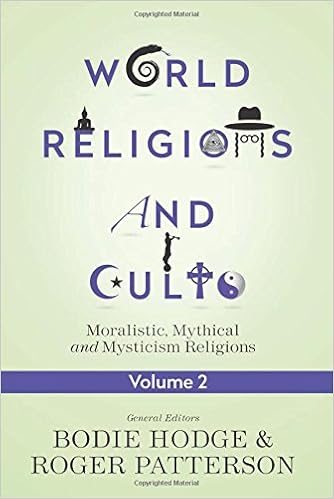Monotheism
Definition
Monotheism refers to any philosophy which claims that there is only one supreme creator of the universe.
Keywords: Monotheism, Atheism, Polytheism, Theism, Philosophy, True, Deductive, Creator, Universe.
Veracity
Monotheistic claims are true .
Proof
Either there are no gods, and therefore atheistic claims are true, or there are many gods, and therefore polytheistic claims are true, or there is only one god, and therefore monotheistic claims are true.
Premise 1: If atheistic claims and polytheistic claims are both false, then monotheistic claims are true.
Premise 2: Both atheistic and polytheistic claims are false.
Conclusion: Therefore, monotheistic claims are true.
Since both atheistic and polytheistic claims are deductively false, monotheistic claims are therefore deductively true.

Gilbert Guttlebocker, Defender of Dragons
Riveting, yet absurd; romantic, yet innocent; Gilbert Guttlebocker, Defender of Dragons is a little Roald Dahl, a little Harry Potter, and a little Chronicles of Narnia, all rolled into one. Timothy McCabe collaborates with the great Benedict Ballyhoot to bring you the novel of the century!

In Printed Form
Along with numerous other authors including Don Landis, Bodie Hodge and Roger Patterson, Timothy McCabe contributes analyses of various world religions and cults in this volume from Master Books.
Other Writings
"How do we know that God(s) still exists today? "
God created time (Genesis 1:1; 2 Corinthians 4:18; 2 Timothy 1:9; Titus 1:2; Hebrews 11:3; Jude 1:25). As the One Who created time, He is inherently atemporal (or omnitemporal depending upon which aspect of His eternality we are emphasizing) (Deuteronomy 33:27; 1 Timothy 1:17; Hebrews 9:14). Given this, He is definitively always the same (Exodus 3:14; Malachi 3:6; James 1:17). If He is always the same, He cannot cease to exist.
Continue reading...
"Hell seems designed to punish disobedience and perceived immorality. Would you agree that acting in a certain manner simply because you fear punishment is cowardly and an invalid motivator?"
The coward is the individual who, out of fear, refuses to do what is right. A coward is NOT someone who, out of fear, CHOOSES to do what is right. That man is not being cowardly -- rather, he is being prudent and sensible. Fear is an excellent and perfectly valid motivator toward good works. God uses it frequently and He instructs us, at times, to do likewise. The Book of Proverbs is filled with examples of the wisdom of a proper fear of God...
Continue reading...
"Is the Bible true?"
Every worldview, when reduced to its most basic fundamentals, requires self-attestation, or, in other words, a "circular argument". Such arguments are necessary for every worldview. For example, a rationalist (someone who accepts reason as the supreme authority) can only attempt to justify his reliance on reason by... using reason. Christianity, likewise, has a supreme authority, and that authority is God. He has given us His Word and told us to use it as our basis for understanding.
Continue reading...